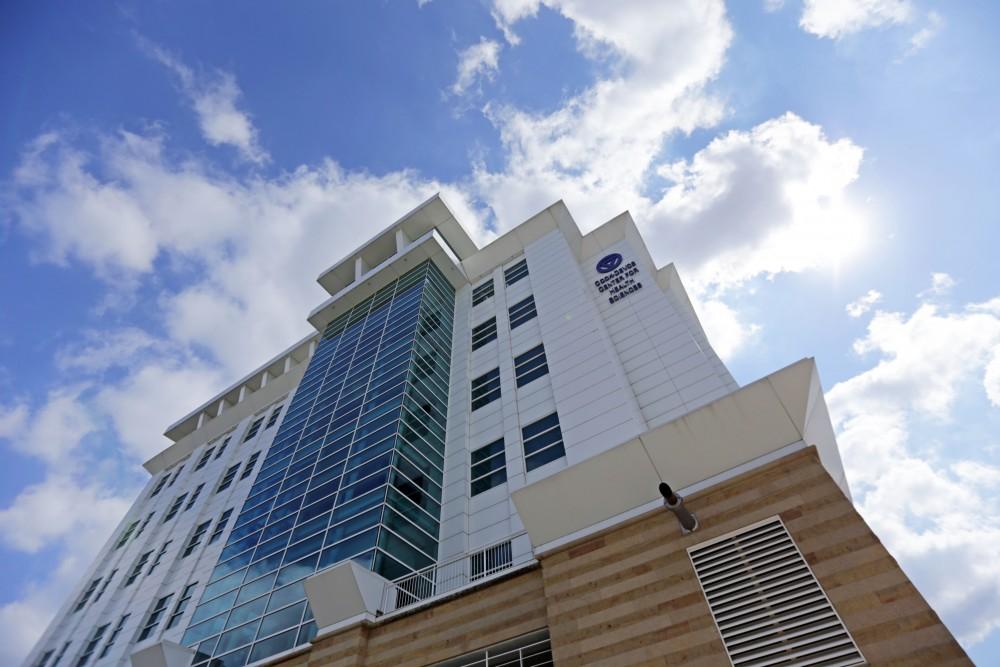UNITAS holds seminar on the reality of human trafficking

GVL / Emily Frye GVSU Cook-DeVos Center for Health Sciences on Thursday September 14, 2017.
Nov 15, 2021
According to United To Fight Against Human Trafficking, tens of thousands of children are victimized by human traffickers in the United States each year. Youths that experience hardships such as homelessness or feel the need to run away from home are most at risk.
On Thursday, Nov 11, the Midwest Interprofessional Practice, Education, and Research Center hosted a seminar led by UNITAS on the harsh realities of human trafficking. UNITAS is an organization that focuses on working with other organizations, whether nonprofit or government, to not only help fight the crisis that is human trafficking, but also focus on preventing it altogether.
Tonya Turner, the executive director of the organization, led the discussion and described having a background working with the children’s services, law enforcement agencies and the FBI to prevent human trafficking.
“They’re being entrapped in this thing called trafficking, they’re being entrapped in this thing called exploitation,” Turner said.
Lamont Hiebert, the program director of UNITAS, focused his time on discussing the types of human trafficking that can occur, which include false promises, labor trafficking, sextortion, fake job offers and LGBTQ youth exploitation. UNITAS is the only organization of its kind in the United States and works with other organizations in the US as well as western Europe. Their organization is also one of the only ones that focus on LGBTQ youth and the added dangers that the communities face in human trafficking.
The conversation then covered the topic of the importance of language and how certain types of language can negatively affect the way that sex trafficking victims are perceived.
“So many times you find language that is disparaging… degrading and dehumanizing words within the contexts that people talk about the ones that are trafficking and exploited,” Turner.
Turner went on to explain that inclusive language doesn’t pit one bad situation against another. Sex trafficking is not modern-day slavery and should not be regarded as such by the public because both are different, horrible situations that should be evaluated in different frames of reference. Words hold power that can undermine the experience of victims and survivors of human trafficking.
Hiebert also shared a touching story of a girl named Lacey, who during her early teens, was exploited by a man older who she met online. Further on during the discussion, Turner provided the audience with personal and professional advice. She also emphasized the importance of trained healthcare professionals.
Ending the event with quiet reflection, Turner made sure that everyone took a deep breath and allowed themselves to process the information.
For anyone who might be struggling, reach out to the national human trafficking hotline at 1-888-373-7888 or contact [email protected] for any further questions or advice on the topic.





















